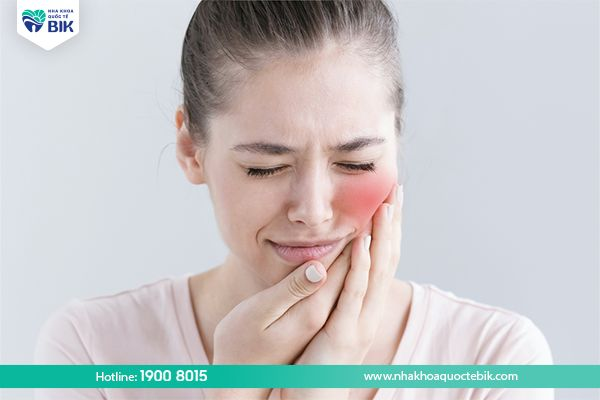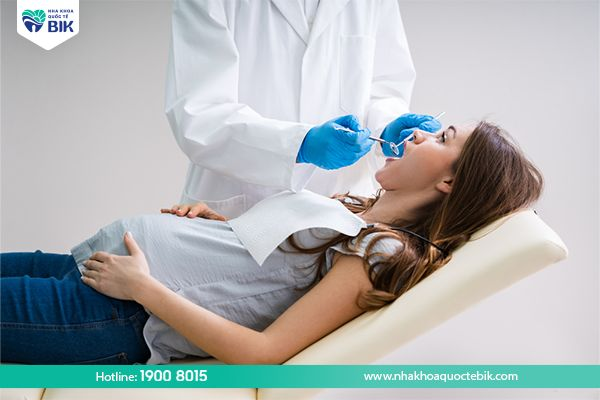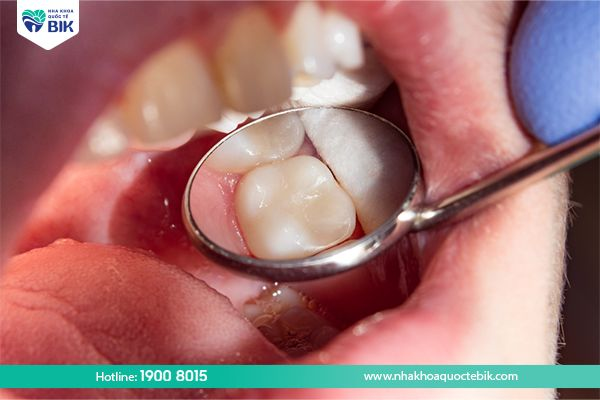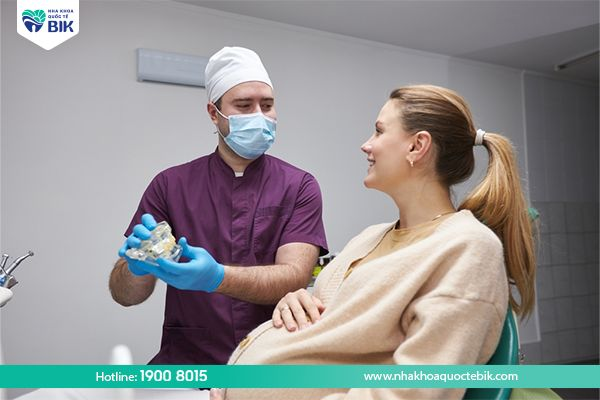Tooth decay is the most common oral disease today, the subjects can be children, adults, especially pregnant women are also at high risk of this disease. It seems that normal people can have their teeth filled at any time when they discover a cavity, but can pregnant women have their teeth filled depends a lot on the stage of pregnancy of the pregnant mother. If not careful, it can affect the health of both mother and baby.
1. Why are pregnant women often prone to dental problems?
For pregnant women, regular dental check-ups are extremely important. The reason is that during this sensitive period, the hormones Progesterone and Estrogen increase, blood circulation is increased and brings more blood to the gums. At that time, the gums will swell and easily react to harmful bacteria, increasing plaque.
Moreover, during pregnancy, the amount of calcium – an extremely important factor that helps keep teeth strong in a woman’s body changes continuously, increasing the possibility of dental problems. If a woman’s body is healthy, it will be difficult to notice this change. On the contrary, for pregnant women, the amount of calcium in the body can decrease significantly.

In particular, when the fetus is about 24 – 25 weeks old, the baby’s skeletal system is forming strongly. And the amount of calcium needed to form the baby’s skeletal system is taken from the mother’s body. Once the mother’s blood does not have enough calcium to supply, the body will mobilize calcium from the bones, and the upper and lower jaw bone tissue is the first bone location.
A problem that pregnant women often encounter is dry mouth. Saliva is known to contain many components that can strengthen tooth enamel, prevent tooth decay, and during pregnancy, the amount of saliva secreted will often decrease. That also means that the risk of the mother getting tooth decay also increases.
During pregnancy, women with infections in any part of the body can pose a potential risk to both mother and baby. If the mother is not completely treated for oral diseases, the risk of premature birth will be higher than mothers without any diseases.

2. Can pregnant women have dental fillings?
Because of the above reasons, pregnant women are often susceptible to tooth decay. It is important to note the time when pregnant women can have dental fillings as follows:
2.1. Dental fillings in the middle 3 months of pregnancy
The best time for pregnant women to have dental fillings is the middle 3 months of pregnancy (month 13 – month 18). The reason is that at this time the fetus is stable, so mild external impacts will not have a negative effect on the baby in the womb.
However, when treating tooth decay, a thorough examination by a doctor is required to ensure the safety of both mother and baby. Patients also need to choose reputable dental facilities with safe filling materials.
2.2. Do not fill teeth in the first and last 3 months of pregnancy
During the first and last 3 months of pregnancy, mothers should not have their teeth filled. Because in the first 3 months the baby in the womb has not yet developed stably, any external impact can affect the comprehensive development of the baby in the womb.
However, in case tooth decay causes prolonged pain, affecting the mother’s spirit and health, it is necessary to fill the tooth to ensure the best health conditions for the mother. It is important to follow the doctor’s instructions for complete treatment and minimize the possibility of affecting the baby.

3. Do dental filling materials affect the fetus?
In the treatment of tooth decay, dental filling is a fairly safe cosmetic solution, does not require anesthesia and has a quick filling time. However, the filling material also needs to be carefully selected.
According to oral health experts, pregnant women should choose dental clinics that use Composite materials for tooth filling to ensure the best safety. Pregnant women should avoid using Amalgam materials for tooth filling.
Many studies have shown the dangerous effects of mercury in Amalgam on human health, especially for pregnant women as follows:
– Contains many metal compounds that cause developmental disorders in the baby.
– Amalgam contains polymers that can cause hormonal changes in the mother, they can penetrate the fetus through the umbilical cord, causing health hazards.
– Increases the risk of premature birth, malformations, and low birth weight in the future.
– When pregnant, filling materials can affect the health of both mother and baby. Therefore, it is necessary to go directly to dental facilities for examination and consultation appropriate to the health condition.

4. What should pregnant women pay attention to when getting their teeth filled?
Pregnancy is a very sensitive period, so pregnant women who need to get their teeth filled should pay attention to the following issues:
4.1. Calculate the appropriate time
Pregnant women should only get their teeth filled around the middle of the 3 months of pregnancy (month 13 – month 18). They should not get their teeth filled too early or too late because it can affect the baby in the womb. If the tooth decay does not cause too much pain, they should wait until after giving birth to get their teeth filled.

4.2. Proper oral care
To prevent tooth decay as well as after filling teeth, pregnant women need to pay attention to proper oral care for the best results:
– Use appropriate toothpaste, brush your teeth at least twice a day in the morning and evening before going to bed.
– When brushing your teeth, pay attention to moderate brushing force, avoid scratching and bleeding the tooth root. You should also choose a soft, thin toothbrush for optimal cleaning.
– Use mouthwash immediately after meals for the best cleaning of teeth.
– Do not use toothpicks, but use dental floss instead to limit damage to the filling material, causing teeth to gradually become sparse over time.
– After tooth filling, teeth can become sensitive and difficult to chew, so you should limit foods that are too hard or too hot or cold. If the sensitivity persists, you should go to the dentist for a more thorough check of your oral health.
– In addition, pregnant women also need to supplement adequate nutrients to protect healthy teeth as well as nourish the baby in the womb.

4.3. Choosing a reliable dental clinic
Pregnant women need to go to reputable dental facilities for examination. Because dental fillings for pregnant women need to use filling materials that are safe for babies as well as modern technology to ensure the best safety.
Thus, if women are pregnant and wondering whether they can have dental fillings while pregnant, they should go to reputable dental facilities for examination and treatment according to the advice and guidance of specialized doctors. You can choose BIK International Dental Clinic as a reliable place for effective and safe treatment of tooth decay.


















